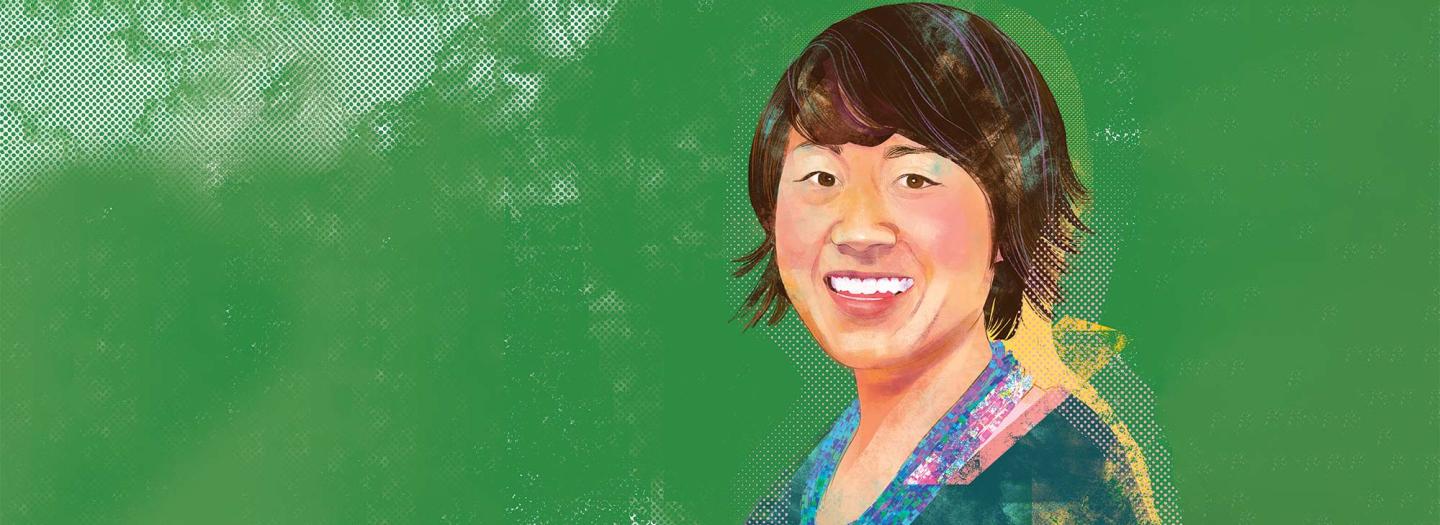Carrie Tsai, DMD, MPH, Resident Alum : Tackling the ‘food environment’ to improve oral health
Carrie Tsai draws on her education in dentistry, public health, and sociology to combat sugar-filled food and drinks.

Illustration: John Jay Cabuay